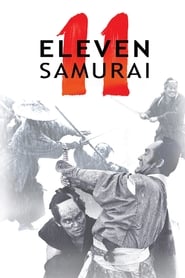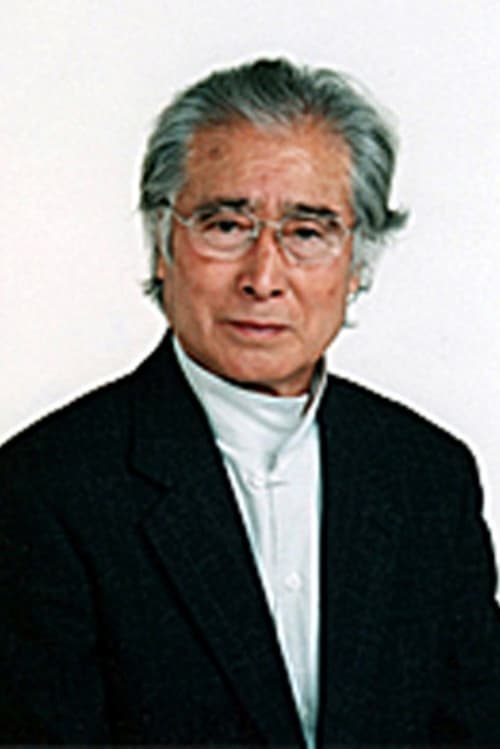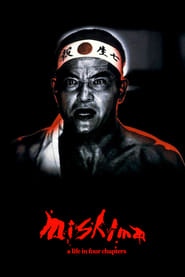detail profile minoru hodaka
Peran Yang Di Mainkan Minoru Hodaka
 Itto Ogami High Executioner to the...
Itto Ogami High Executioner to the...The Fugitive Samurai 1984
Itto Ogami- High Executioner to the Shogun- has been betrayed by his political enemies and sentenced to a dishonorable death. Seeking to restore the honor of his name, Ogami- The Wolf- must flee the Shogun's grasp and live long enough to prove his innocence. Taking only his sword and his son, Ogami embarks on a bloody journey of righteousness and revenge as he seeks to destroy those who would disgrace his family's name. Hunted mercilessly by the Shogun's troops, by his enemies, and by those who seek the reward put on his head, Ogami must fight his way through feudal Japan, challenging and defeating all who stand in the way of his quest for honor. Can Ogami- a true Samurai Warrior- endure the ceaseless violence which surrounds him?
 Samonji a reporter receives a message...
Samonji a reporter receives a message...0計画を阻止せよ-総理大臣誘拐!!- 1979
Samonji, a reporter, receives a message on his answering machine from his friend Takada that says "stop it... zero plan! February." Learning that Takada is dead, Samonji begins an investigation. He and his younger sister Fumiko investigate major events happening in February but cannot find anything relevant. Meanwhile, Kanzaki, a doctor who works at a clinic on a remote island, is working on a plan to extort two billion yen.
 The most dangerous hired gun in...
The most dangerous hired gun in...The Tattooed Hitman 1974
The most dangerous hired gun in Kyushu's underworld has managed to trigger a vicious gang war, and now, there's a contract on his life. Though nobody is more skilled in the arts of dealing death, can the tattooed hitman fend off the entire Japanese mafia as he searches for the man who wants him dead?
 The lord of the Oshi fief...
The lord of the Oshi fief...Eleven Samurai 1967
The lord of the Oshi fief is killed by his trespassing neighbour, the cruel and despotic Nariatsu, son of the former Shogun. After an investigation, the Oshi clan is blamed for what happened and sentenced to be disbanded. Eleven of the best samurai of the clan refuse the sentence and are willing to give their life for justice.
 Loyal samurai Samanosuke is attacked mutilated...
Loyal samurai Samanosuke is attacked mutilated...Sazen Tange and The Secret of the Urn 1966
Loyal samurai Samanosuke is attacked, mutilated, and left for dead while carrying out a mission for his clan. He recovers but has lost an eye and an arm. Taking a new identity as Tange Sazen, he searches for a stolen urn which has hidden significance to his clan. But Tange Sazen has his own reasons for seeking the urn.
 Years of warfare end in a...
Years of warfare end in a...Samurai Spy 1965
Years of warfare end in a Japan unified under the Tokugawa shogunate, and samurai spy Sasuke Sarutobi, tired of conflict, longs for peace. When a high-ranking spy named Tatewaki Koriyama defects from the shogun to a rival clan, however, the world of swordsmen is thrown into turmoil. After Sasuke is unwittingly drawn into the conflict, he tracks Tatewaki, while a mysterious, white-hooded figure seems to hunt them both. By tale’s end, no one is who they seemed to be, and the truth is far more personal than anyone suspected. Director Masahiro Shinoda’s Samurai Spy, filled with clan intrigue, ninja spies, and multiple double crosses, marks a bold stylistic departure from swordplay film convention.
 Assassination begins with the events of 1853...
Assassination begins with the events of 1853...Assassination 1964
Assassination begins with the events of 1853 when "four black ships" anchored at Edo Bay, sparking civil unrest and the major political manoeuvring that saw the end of the Tokugawa Shogunate. At a time when assassination had become a disturbing political tool, Shinoda's film follows Hachiro Kiyokawa, an ambitious, masterless samurai whose allegiances drift dangerously between the Shogunate and the Emperor.
 Junai Monogatari AKA Story of Pure...
Junai Monogatari AKA Story of Pure...The Story of Pure Love 1957
Junai Monogatari AKA Story of Pure Love is about two poor youths, Mitsuko and Kando, rebelling against society in various ways, who are desperately trying to be together despite tortuous circumstances. The film depicts their lives as thieves, menial laborers who can get little pay, society outcasts, and of course, lovers. Junai Monogatari depicts, mostly, their struggles within the Japanese reformatory system and Mitsuko's worsening sickness.

 A fictional account of the life...
A fictional account of the life... While Hirono is in prison his...
While Hirono is in prison his... When a rebellious roughneck enlists in...
When a rebellious roughneck enlists in... Detective Kikuchi is sent to Okinawa...
Detective Kikuchi is sent to Okinawa... A highranking yakuza rises to national...
A highranking yakuza rises to national... This anthology film consists of nine...
This anthology film consists of nine... Police investigators investigate the link between...
Police investigators investigate the link between... Shimamura is a violent street thug...
Shimamura is a violent street thug... A story of young students trained...
A story of young students trained... A former soldier is caught working...
A former soldier is caught working... In turbulent 16thcentury Japan the leaders...
In turbulent 16thcentury Japan the leaders...